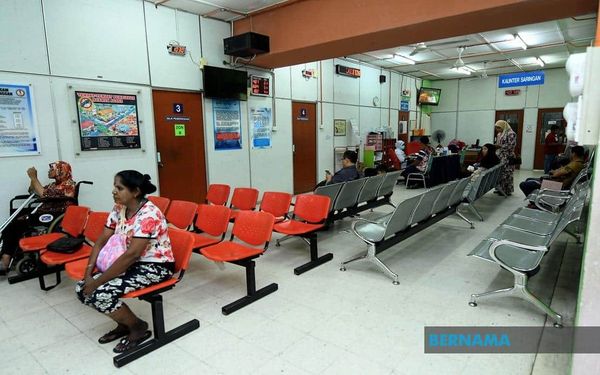KUALA LUMPUR, July 31 — The Health Ministry (MOH) spends RM137 million a year to maintain 201 health clinics nationwide under the Clinic Support Services (PSK), with a five-year contract from 2022, the Dewan Negara was told today.
In a written reply to Senator Lingeshwaran R. Arunasalam, it said the PSK is a non-comprehensive maintenance programme involving facility engineering maintenance services and cleaning services.
For the last five years, 65 health clinics have been completed with a project cost of RM1,156,572,795 and have begun operations to provide services to the people.
"Currently, the MOH is examining proposals to collaborate with private health clinics for some services, especially preventive, promotive and curative services," the MOH said.
Senator Lingeshwaran wanted to know the estimated cost to build and maintain a health clinic in a year, the amount of allocations spent in the last five years, and the proposal to outsource health clinic services as a more cost-effective measure.
Meanwhile, responding to Senator Datin Ros Suryati Alang, the ministry said it is implementing various preparedness measures with regard to pandemic threats.
She had inquired about the preparations to face any pandemic threat and the latest developments in the production of locally-made vaccines.
“Among measures is building a National Centre for Disease Control on par with the Centres for Diseases Control and Prevention in the United States, as well as in other countries.
"This project was approved by the Economic Planning Unit under the Fourth Rolling Plan (2019-2020) of the 11th Malaysia Plan (11MP), with a total cost of RM500 million to be built on a 20-acre site located in Bandar Enstek, Negeri Sembilan," the MOH said.
Additionally, it is also implementing continuous improvements in standard operating procedures as well as guidelines related to preparedness and response to pandemics at all levels.
The two types of Covid-19 vaccines, namely inactivated virus and mRNA technology, which the ministry is developing through research at the Institute of Medical Research (IMR), are expected to take five to seven years before they can be used.
"This is because the vaccines produced must be proven to be effective and safe, that is, after passing phase one (and then) to three clinical studies," it said.
The development of this locally-made vaccine is jointly led by the Science, Technology, and Innovation Ministry and MOH, and involves collaboration between various government and private agencies.
— Bernama




